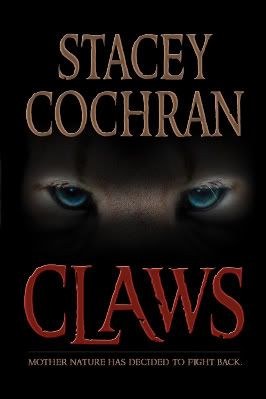Now that you have written and published your book, the hardest part is selling it. With more than 400,000 titles published in 2008, and now the explosion of ebooks, your marketing efforts have to be extraordinary even if you believe you have written a bestseller.
 Whether you are self-published or published by a traditional house, you will have to market, promote and sell your book. With print book sales declining, and ebook sales exploding, traditional publishers are forced to rely on the authors to promote and sell their books. They no longer have the unlimited marketing budgets of the past.
Whether you are self-published or published by a traditional house, you will have to market, promote and sell your book. With print book sales declining, and ebook sales exploding, traditional publishers are forced to rely on the authors to promote and sell their books. They no longer have the unlimited marketing budgets of the past.I know many authors both self-published and traditionally published who are working equally hard to sell their books. It's a tough market, but here are some ways to improve the odds.
- Get Connected with Social Media – Create a Facebook, MySpace, Linkedin page, open a Twitter account, join any NING social networks related to your interests and book. Sign up to networking sites like Meetup.com, Classmates.com or InsideAreaCodes.com. Register with social bookmarking sites like Stumbleupon.com, Delicious.com or Digg.com.
- Register as an author on the online book sharing sites like Goodreads.com, Scribd.com, weRead.com and Shelfari. Visitors see your book, may purchase it and post a review on these sites.
- Use your book cover as your avatar or personal photo. The book cover consistently reminds others you are published author. It may peak their curiosity enough to investigate your book and maybe purchase it.
- Work the social network sites consistently. After you have chosen the sites best suited to your interests and your book subject, you must participate on the sites for social networking to work. It is like you are running on a treadmill and the treadmill is connected to a generator keeping the lights on in your house. As long as you are running, the lights stay on and you keep building that Internet buzz about your book. When you slow down, the lights dim and the buzz is not so intense. When you stop completely, the buzz disappears.
- Put aside about a half hour of time each morning and each evening to participate on the social networking sites. Make comments, post announcements, send tweets, and respond to other's posts and blogs. You don't necessarily have to make your submissions related to your book. You can talk about anything as long as you're a doing something online where others see you and your book. Leave a link back to your book or web site on any post or comment and make sure you say something interesting to attract visitors to your website or blog.
- Create a blog and leave comments on blogs similar in subject matter to your book. Blogger.com and Wordpress.com are the two most used free blog hosting services. Blogger is best for the beginner blogger because it is very easy to use and doesn't contain a lot of bells and whistles used by programmers. Wordpress is the more advanced blog for users who know more about web page design and creation. Either site will work for the beginner or advanced user.
- Search for blogs that are similar in subject matter of your book or interests. Technorati and Google Blog Search are good search engines for finding related blogs.
- Join forums about your subject matter and participate. Use the various search engines to find forums related to your book. I find forums get a lot of traffic and when you post a discussion, you usually get instant results.
- Create contests and giveaways on your blog or website. Goodreads manages a book giveaway contest. All you have to do is determine how many books you want to give away and which countries you want contestants. Goodreads randomly chooses the winners for you and all you have to do is send them a book.
![Reblog this post [with Zemanta]](http://img.zemanta.com/reblog_e.png?x-id=4314dfc0-4df4-4daa-98e3-2d98d9096e68)


![Reblog this post [with Zemanta]](http://img.zemanta.com/reblog_e.png?x-id=21fa8aa0-0151-458a-a803-06e08315cec6)

![Reblog this post [with Zemanta]](http://img.zemanta.com/reblog_e.png?x-id=063709db-1c0c-45e7-bab7-4501f754fdd7)

![Reblog this post [with Zemanta]](http://img.zemanta.com/reblog_e.png?x-id=95c39465-9eb6-4738-8343-535822da5203)


![Reblog this post [with Zemanta]](http://img.zemanta.com/reblog_e.png?x-id=fc8e1371-791f-497b-82e6-60856f1856d8)

![Reblog this post [with Zemanta]](http://img.zemanta.com/reblog_e.png?x-id=ee01e087-3dfd-4b3a-8cc2-6424835beda6)